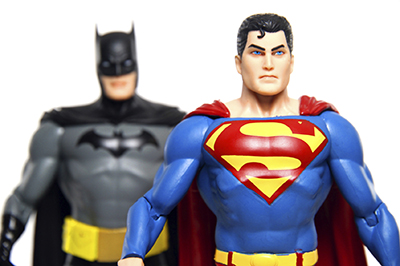 In the new blockbuster Batman v Superman, Lex Luthor says ‘‘Do you know the oldest lie in America?’ ‘It’s that power can be innocent’’. The film pits Batman and Superman against one another, when Bruce Wayne decides that Superman needs to be stopped for the good of society, because his powers are causing chaos. The film deals with the dangers of power. Do the same rules apply to superheroes as to ordinary people? Can superpowers ever be fully controlled? Is being special a good thing, or are we better off when everybody behaves the same way?
In the new blockbuster Batman v Superman, Lex Luthor says ‘‘Do you know the oldest lie in America?’ ‘It’s that power can be innocent’’. The film pits Batman and Superman against one another, when Bruce Wayne decides that Superman needs to be stopped for the good of society, because his powers are causing chaos. The film deals with the dangers of power. Do the same rules apply to superheroes as to ordinary people? Can superpowers ever be fully controlled? Is being special a good thing, or are we better off when everybody behaves the same way?
What makes a hero?
The film’s premise is a great excuse for an epic battle between the two superheroes with lots of special effects, but it’s also reminiscent of how the ancient Greeks regarded the heroes who dominated their myths. The idea that superheroes might not be ‘goodies’ is strange to us, because nowadays ‘hero’ is a positive word. In real life, we call someone a ‘hero’ if he or she carries out an exceptionally good and selfless deed, for example a soldier who risks his life to save a comrade, or a passer-by who pulls a child out of a river. In films and comic books, superheroes use their power to save the world from dastardly villains who want to destroy it.
To the ancient Greeks, however, heroes were not necessarily good so much as larger than life, and they tend to be excessive in their character and actions. The heroes are powerful and charismatic, but they are also proud, egotistical, violent and cruel. It’s essential to our concept of the hero that they try to use their powers for good. It caused controversy when Superman killed the villainous General Zod at the end of the last Superman film, Man of Steel, because part of Superman’s mythos is that he doesn’t use his powers destructively. Having Superman kill, even for the greater good, made many fans unhappy, and it would be unthinkable for us to have a superhero who just didn’t care about innocent bystanders being killed, or decided to prioritise his own desires above saving the human race.
In the Greek myths, on the other hand, the heroes want to use their power for their own benefit, and they don’t much care if those around them become collateral damage. In Homer’s Iliad, for example, the greatest Greek hero, Achilles, withdraws from the fighting over a dispute about a girl, and allows his companions to be butchered by the Trojans in his absence. Far from being distressed by the suffering that his actions are causing his friends, Achilles prays that the gods will make the Trojans victorious so that they will appreciate him all the more. In Sophocles’ tragedy Ajax, Ajax (the next greatest hero after Achilles’ death) is so offended by the Greeks’ decision not to give him Achilles’ armour that he decides to slaughter them all.
Heroes and democracy
In democratic Athens, the question of how you can reconcile a powerful individual with the needs of his community took on particular force. Athenian society emphasised that one should act for the common good, but aristocratic families were still powerful in public life. They dominated political debate, formed the majority of generals, and paid for many public benefits. Athenians were constantly afraid that a charismatic individual would become too powerful, and attempt to bring down the system and set himself up as a tyrant, yet they also expected their leaders to come from an aristocratic background, and mocked politicians who had more humble origins. What to do about powerful individuals was a constant source of tension, and this explains the appeal of the heroes of myth. The heroes were the aristocrats of their own day, but were safely enclosed in the mythological world. This meant that they could be used to think about difficult issues without it becoming too personal or painful for any real people. This also explains why Athenian tragedy is so fond of depicting the crises in the heroes’ lives: moments when their power leads to their downfall. While we might admire the heroes, we don’t necessarily want them living anywhere near us, and tragedy reinforces the idea that if individuals have excessive power, it endangers the rest of the community.
The difficulty of having heroes in a democracy also features in Batman v Superman. A recently released still from the film shows Superman walking through the foyer of a courthouse, where he’s presumably facing trial for his actions, while onlookers gape in astonishment. Having Superman in full costume against a humdrum backdrop brings out how difficult it is to incorporate superheroes in any kind of realistic society. We might know that Superman always tries to do good, but does that mean he shouldn’t have to face any consequences when things do go wrong? Should superheroes be exempt from the laws that govern ordinary people? Or do their extra powers mean that we hold them to an even higher standard? These ideas tap into contemporary fears about a powerful elite who don’t have to play by the same rules as the rest of us.
Most people who go to see Batman v Superman will take the film as a fun piece of escapism. Superheroes represent a fantasy version of ourselves at our best, with their strength, their special powers, and their noble quests. No doubt many of the ancient Greeks who thrilled at hearing the great deeds of Achilles or the tragic end of Ajax would have enjoyed these stories for the same reason. But the idea of the great hero touches on deeper themes of how individual brilliance can be reconciled with the social good, and these speak to us now just as they did more than two and a half thousand years ago.
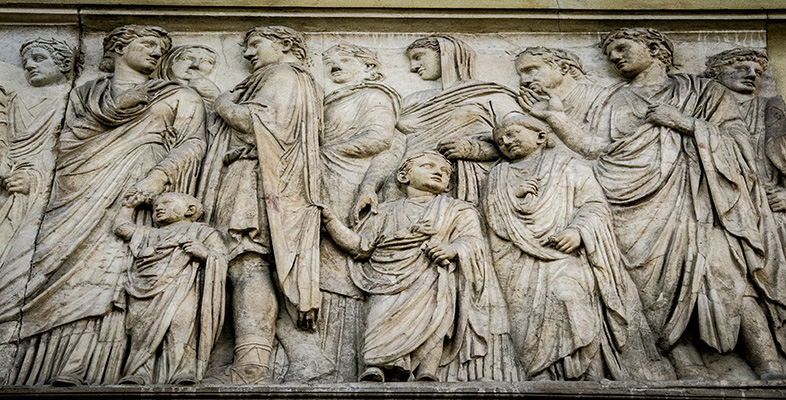
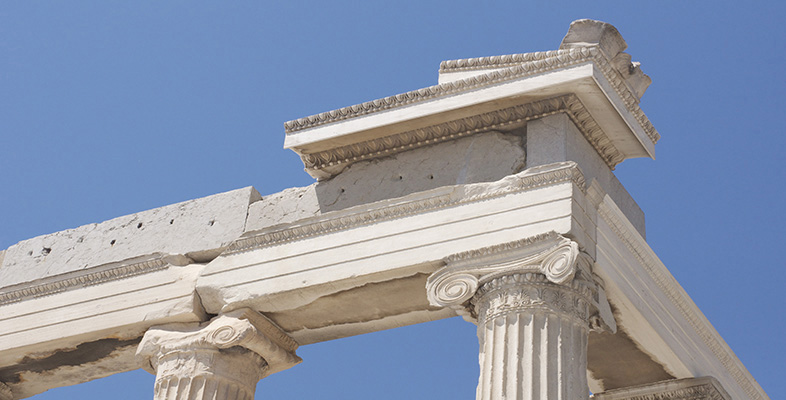
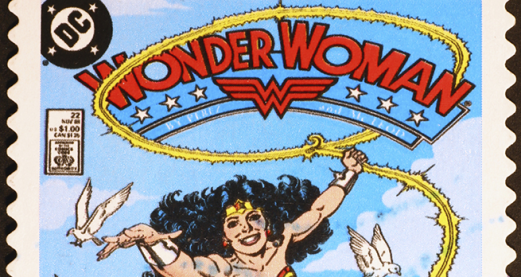
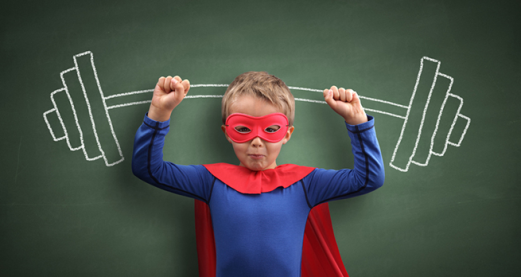
Rate and Review
Rate this article
Review this article
Log into OpenLearn to leave reviews and join in the conversation.
Article reviews
I had never really thought about modern society's 'elites' in that manner before - Bill Gates as Superman?
At least he does try to do good in many ways ... compared to many of today's 'elites' who appear to act above the law - tax avoidance, buying political favours etc.